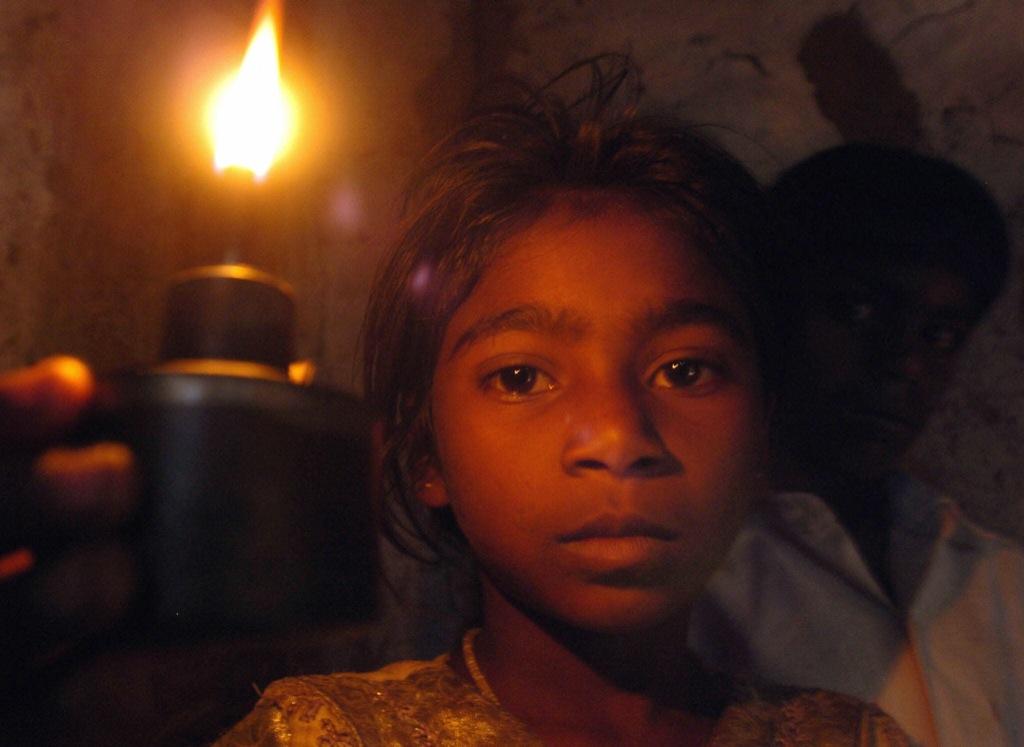India reels with power outages due to Telangana protests
A girl with a kerosene lamp inside her house in Obelahalli village, about 80 kilometres (49.6 miles) north of Bangalore, 03 July 2005.
The Indian capital — not long ago declared a "no shortage zone" — was unable to escape electricity shortages over the weekend, as protesters agitating for the carving out of a new state from present-day Andhra Pradesh disrupted coal supplies, India Today reports.
Rotating brown outs, here called load shedding, left many areas of New Delhi without power for hours on Saturday and Sunday, and officials say that the problem is likely to get worse before it gets better, the paper said.
On Sunday, DTL's spokesperson Rishi Raj acknowledged that there was a power shortfall of between 270MW and 300MW. However, speaking unofficially, discoms put the shortfall at anything between 300MW and 1,000MW depending on the time of the day, or about 25 per cent of the current peak demand of 4,000MW. So what has suddenly gone wrong with the state power supply set- up? "Nothing and everything," India Today quoted a senior state official as saying.
Delhi and its neighbors have also been hit by an agitation for statehood for Telangana — a region in Andhra Pradesh. A senior manager at a private discom said, "Operations at the Ramagundam plant of NTPC in Andhra Pradesh have been severely hampered because of the ongoing Telangana agitation. There is complete mining and generation disruption. This plant primarily sources power to the Northern Grid."
Meanwhile, a blockade of major highways organized by another political group set a new record — isolating the northeastern state of Manipur for a whopping 70 days, according to the Assam Tribune.
The Sadar Hills Districthood Demand Committee (SHDCC) blocked highways into Manipur July 31 demanding the creation of a separate district for the various tribes of the Sadar Hills area, while the United Naga Council (UNC) began its one counter blockade August 21 to protest against carving the district out of a Naga-inhabited area.
That means that while citizens of New Delhi may suddenly be confronting 1990s-style power cuts, their counterparts in Manipur are facing skyrocketing prices for essential commodities. The price of cooking gas, for instance, has shot up by around four times, while the prices for staple vegetables have doubled or tripled.
The story you just read is accessible and free to all because thousands of listeners and readers contribute to our nonprofit newsroom. We go deep to bring you the human-centered international reporting that you know you can trust. To do this work and to do it well, we rely on the support of our listeners. If you appreciated our coverage this year, if there was a story that made you pause or a song that moved you, would you consider making a gift to sustain our work through 2024 and beyond?
